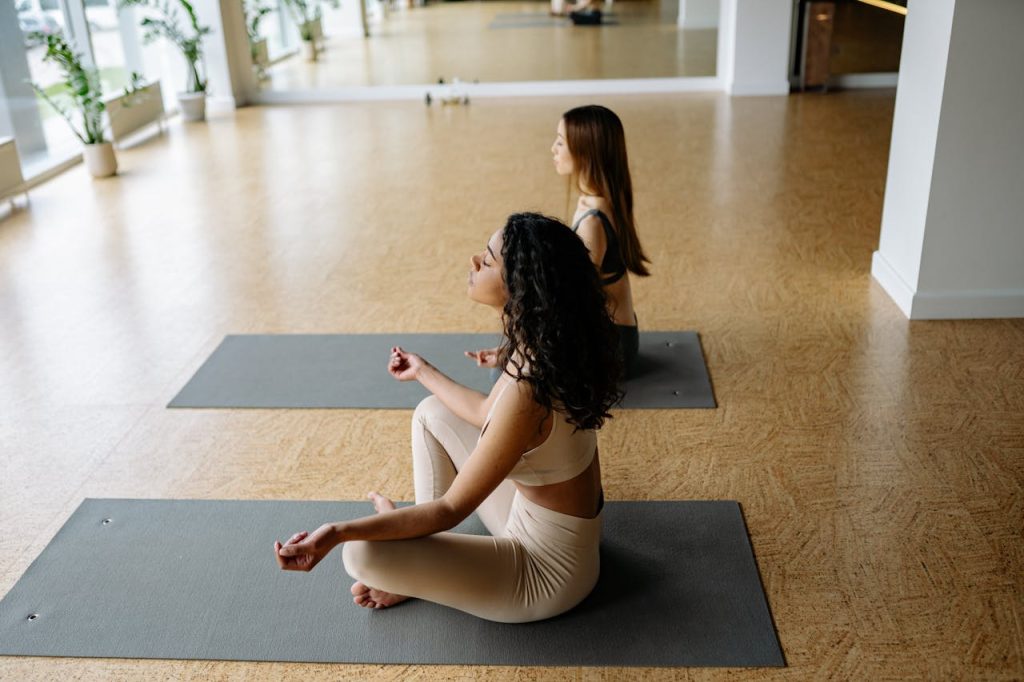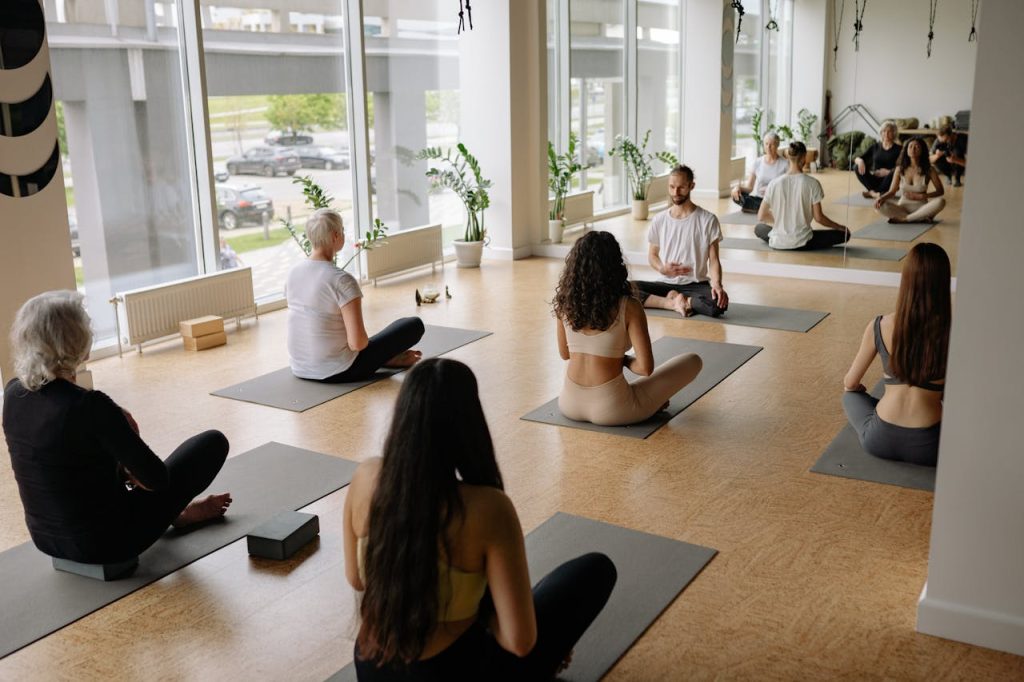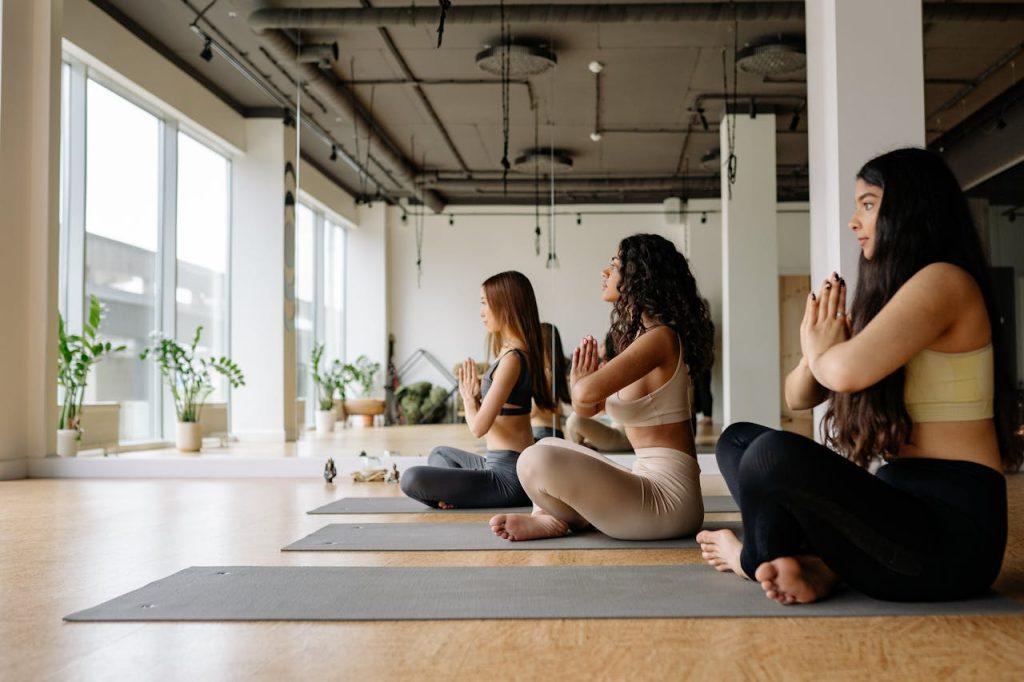Discover the ultimate guide to meditation. Learn powerful techniques, benefits, and tips to start your meditation practice today. Enhance focus, reduce stress, and transform your mind with this beginner-friendly meditation guide.
Overview
In this complete guide to meditation, you’ll learn everything you need to begin or deepen your mindfulness journey. This blog covers the foundations of meditation, step-by-step techniques, mental and physical benefits, and expert tips for creating a consistent routine. Whether you’re new to meditation or looking to refine your practice, this guide will help you develop clarity, peace, and balance in your daily life.
By the end of this article, you will learn:
- What meditation is and how it works
- Proven techniques for beginners and advanced practitioners
- The health benefits of regular meditation
- How to build a consistent meditation routine
- Common challenges and how to overcome them
What Is Meditation?
Meditation is a mindful practice that trains the mind to focus, find calm, and increase awareness. At its core, it’s about observing your thoughts and emotions without judgment. This guide to meditation emphasizes that the practice isn’t about clearing the mind but about understanding it.
When you meditate, you engage in techniques like focusing on the breath, repeating mantras, or visualizing peaceful imagery. Over time, these practices help you develop emotional stability, improved concentration, and a deep sense of inner peace.

Why Meditation Matters in Modern Life
In today’s fast-paced world, stress and anxiety have become part of everyday life. Meditation offers a powerful antidote. It allows the mind to slow down, restore balance, and reconnect with the present moment.
According to scientific studies, meditation can:
- Lower cortisol (stress hormone) levels
- Improve sleep quality
- Enhance emotional regulation
- Strengthen memory and concentration
- Support overall mental well-being
This guide to meditation helps you explore how such a simple yet profound practice can create lasting change in both your personal and professional life.
Different Types of Meditation Practices
There isn’t a one-size-fits-all approach to mindfulness. In this guide to meditation, we’ll explore several popular types so you can find what resonates best with your personality and lifestyle.
1. Mindfulness Meditation
This involves focusing on your breath and observing your thoughts as they come and go. You simply sit quietly and notice sensations, emotions, and sounds without judgment.
2. Guided Meditation
Perfect for beginners, guided meditation involves following a teacher’s or narrator’s voice that leads you through a peaceful visualization or body scan. You can access free guided meditations through Mindfulness Meditation Hub’s online resources.
3. Transcendental Meditation
This technique uses mantras—repeated words or phrases—to help the mind settle into deeper states of awareness.
4. Loving-Kindness Meditation (Metta)
This practice focuses on cultivating compassion and love toward yourself and others, promoting emotional healing and empathy.
5. Movement-Based Meditation
Not all meditation requires stillness. Practices like yoga, tai chi, or walking meditation combine mindfulness with gentle movement to promote balance and awareness.
How to Start a Meditation Practice
Starting your meditation journey doesn’t have to be complicated. Here’s a simple step-by-step guide to meditation for beginners:
Step 1: Choose a Quiet Space
Find a calm, comfortable place where you won’t be disturbed. It could be a corner of your home, your garden, or even a quiet park bench.
Step 2: Set a Time Limit
If you’re new, start with just 5–10 minutes per session. Gradually increase to 20–30 minutes as you get comfortable.
Step 3: Sit Comfortably
Sit upright in a chair or on the floor. Keep your spine straight but relaxed.
Step 4: Focus on Your Breath
Close your eyes and bring your attention to your breath. Notice how the air feels as it enters and leaves your nostrils.
Step 5: Acknowledge Distractions
Your mind will wander—that’s normal! When it does, gently bring your focus back to your breath without frustration.
Step 6: End with Gratitude
Before opening your eyes, take a moment to thank yourself for practicing. Feel appreciation for your growing mindfulness.
At Mindfulness Meditation Hub, we offer guided meditations and personalized sessions to make these steps effortless and enjoyable.

The Benefits of Daily Meditation
The benefits of meditation extend beyond mental calm—it influences every aspect of your life. This guide to meditation outlines the most impactful advantages:
1. Reduces Stress and Anxiety
Meditation helps calm the nervous system, reducing stress responses and anxiety symptoms.
2. Improves Focus and Productivity
A few minutes of mindfulness each morning can boost attention span, decision-making, and creativity throughout the day.
3. Enhances Emotional Health
Regular meditation promotes positive thinking, self-awareness, and emotional resilience.
4. Boosts Physical Health
Studies show meditation can help lower blood pressure, improve immune function, and even reduce chronic pain.
5. Supports Better Sleep
By calming racing thoughts, meditation prepares your body for restful, rejuvenating sleep.
Common Challenges and How to Overcome Them
Even seasoned meditators face obstacles. This guide to meditation includes practical tips to stay consistent:
- Challenge: Difficulty focusing
Solution: Start with shorter sessions and use guided audio meditations. - Challenge: Feeling impatient or restless
Solution: Acknowledge the feeling—then return to your breath. - Challenge: Inconsistent routine
Solution: Meditate at the same time daily. Treat it as self-care, not a chore. - Challenge: Expecting immediate results
Solution: Meditation is a journey. Progress is gradual but deeply rewarding.
Creating a Meditation Routine That Lasts
Consistency is the key to success. Follow this guide to meditation structure for a sustainable habit:
- Morning Routine: Start your day with 5–10 minutes of mindful breathing.
- Midday Check-In: Take short breaks to ground yourself and reset your focus.
- Evening Reflection: Use guided meditations to release stress before bed.
You can also enhance your experience by joining Mindfulness Meditation Hub’s online sessions or exploring our guided meditation library designed for all experience levels.
Why Choose Mindfulness Meditation Hub?
At Mindfulness Meditation Hub, we make mindfulness simple and accessible for everyone. Whether you’re seeking relaxation, spiritual growth, or emotional healing, our guided meditations and expert-led programs are designed to support your personal transformation.
We offer:
- Guided meditation sessions for beginners and experienced practitioners
- Personalized mindfulness coaching
- Stress management workshops
- Free meditation resources and video sessions
By following this guide to meditation, you’ll not only learn the basics—you’ll gain access to ongoing support and tools for a lifetime of peace and self-awareness.
Final Thoughts: Begin Your Journey Today
Meditation is more than just a practice—it’s a lifestyle of presence, awareness, and self-compassion. Whether you start with a few minutes a day or attend fully guided sessions, every moment you dedicate brings you closer to balance and inner harmony.
This guide to meditation invites you to begin today. Let Mindfulness Meditation Hub be your companion in creating a calmer, more mindful life.
15 FAQs for Guide to Meditation
What is meditation, and how does it work?
Meditation is a mindfulness practice that helps you train your mind to focus, calm your thoughts, and become more aware of the present moment. In this guide to meditation, you’ll learn how it works by focusing attention—often on your breath or a mantra—to develop mental clarity and inner peace.
How do I start meditation as a beginner?
Begin by setting aside 5–10 minutes daily in a quiet space. Sit comfortably, close your eyes, and focus on your breathing. When your mind wanders, gently return to your breath. This guide to meditation encourages starting small and increasing time gradually for best results.
What are the different types of meditation?
Common types include mindfulness meditation, guided meditation, transcendental meditation, loving-kindness meditation, and movement-based meditation such as yoga. Each has unique benefits, and this guide to meditation helps you find one that suits your personality and lifestyle.
How long should I meditate each day?
For beginners, 10–15 minutes daily is a great starting point. As you get more comfortable, you can extend your sessions to 20–30 minutes. The most important thing is consistency—this guide to meditation emphasizes daily practice over duration.
Can meditation reduce stress and anxiety?
Yes, meditation is scientifically proven to lower stress and anxiety levels. It reduces cortisol (the stress hormone) and promotes relaxation. Our guide to meditation shows how even a few minutes of mindfulness each day can bring calm and emotional balance.
What equipment do I need for meditation?
You don’t need any special tools—just a quiet space and a comfortable seat. However, you may use a cushion, mat, or headphones for guided meditation sessions. This guide to meditation focuses on simplicity and accessibility.
When is the best time to meditate?
Morning meditation sets a calm tone for the day, while evening meditation helps release stress before sleep. There’s no wrong time—choose what fits your schedule. In this guide to meditation, we recommend consistency over timing.
Can meditation improve focus and concentration?
Absolutely. Regular meditation strengthens attention and helps you stay present. According to our guide to meditation, practicing daily enhances cognitive performance, productivity, and creative thinking.
What should I do if my mind keeps wandering during meditation?
It’s completely normal! The key is to notice when your thoughts drift and gently guide your focus back to your breath. The guide to meditation reminds you that progress comes from awareness, not perfection.
How long does it take to see results from meditation?
Most people notice improvements within a few weeks of daily practice—such as reduced stress and better sleep. Long-term benefits, like improved focus and emotional balance, develop with consistent effort. This guide to meditation encourages patience and persistence.
Is guided meditation good for beginners?
Yes, guided meditation is ideal for beginners. A teacher or recording walks you through relaxation and visualization steps. The guide to meditation recommends using guided sessions from Mindfulness Meditation Hub to make starting easier.
Can meditation help with sleep problems?
Definitely. Meditation calms the nervous system, reduces racing thoughts, and prepares your body for restful sleep. This guide to meditation suggests evening mindfulness or body-scan techniques for better sleep quality.
What are the mental and physical benefits of meditation?
Meditation enhances focus, reduces stress, boosts mood, lowers blood pressure, improves immunity, and promotes self-awareness. In this guide to meditation, we explore how it benefits both the mind and body for holistic well-being.
Do I have to sit cross-legged to meditate?
No, you can meditate sitting in a chair, lying down, or even walking. Comfort matters more than posture. The guide to meditation encourages finding a position where your body can relax without distraction.
How can Mindfulness Meditation Hub help me start meditating?
Mindfulness Meditation Hub offers free guided meditations, mindfulness courses, and one-on-one sessions for beginners and experienced meditators. Our guide to meditation provides practical steps, while our programs help you stay consistent and confident on your mindfulness journey.

